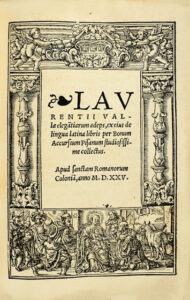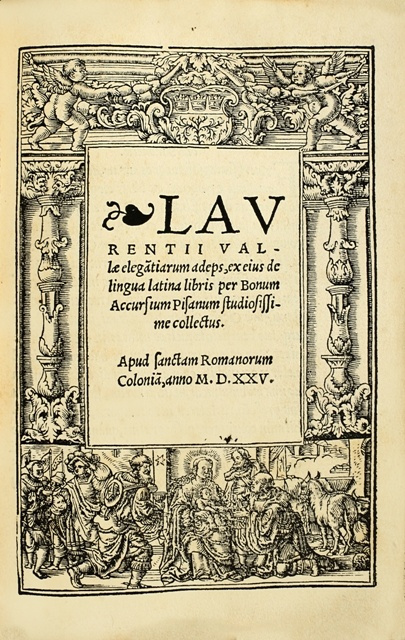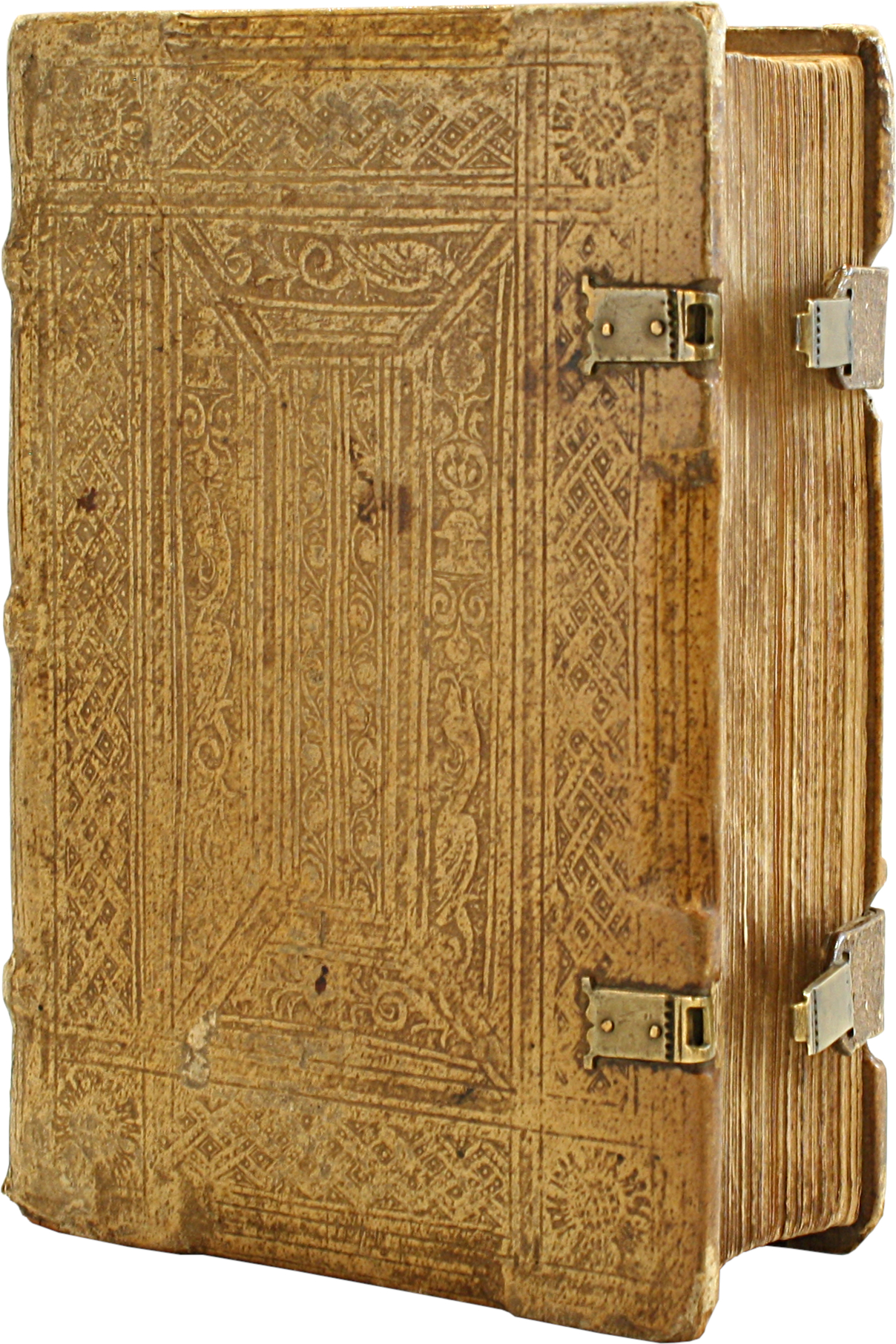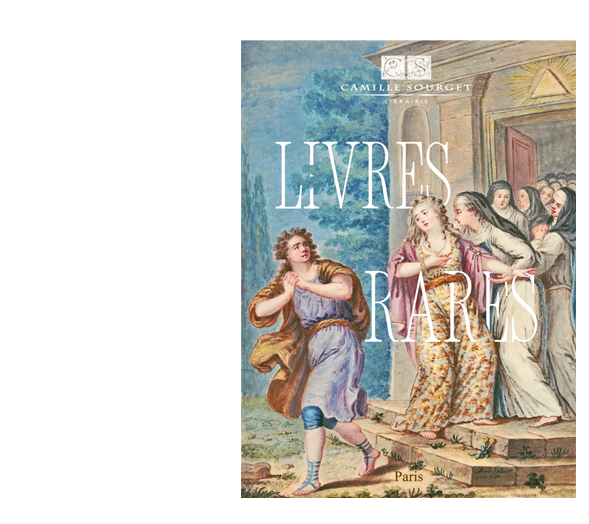Argentorati, Iohannem Heruagium, 1525.
[Followed by]: Erasmus. De octo orationis partium constructione libellus, tum elegans imprimis, tum dilucida brevitate copiosissimus. Erasmo roterodamo autore.
At the end “Augustae Vindelicorum, in officina D. Sigismum Grim, 11 Aout Anno 1523.”
[Followed by]: Valla. Laurentii vallae elegatiarum adeps, exeius de lingua latina libris per Bonum Accursium Pisanum studiosissime collectus. (Les élégances de la langue latine).
Apud Sanctam Romanorum Colonia, 1525.
That is three texts bound in one 8vo volume [148 x 100 mm] of: I/ 184 ll., the last one blank; II/ (28) ll. ; III/ (1) p. of title, 148 pp., (10) pp. of index, (1) bl.p. Numerous handwritten notes on the last 2 ll. of the 1st text. Bound in blind-stamped pigskin over wooden boards, brass ties and clasps. Contemporary binding.
Reunion in quite rare and quite precocious editions of 3 important founding works of the Renaissance, in philology and grammar, by Erasmus and by his master Laurent Valla.
Laurent Valla, “the greatest humanist of the first half of the 15th century” was born in Rome around 1407. (Guilio Vallese).
“Deeply convinced of the superiority of the antique culture, renewed at the time, in which he saw an incomparable ferment of regeneration, Valla, in order to defend it, didn’t hesitate to take the chance of being condemned in front of the Inquisition court. As other humanists of this time, he claimed to be of the rationalist moral antique transmitted in the books of Wisdom, when the Middle Ages had impoverished or lost the very meaning of it.”
Valla’s most famous treatise “Des élégances de la langue latine” that had most contributed to his reputation, in six books, was rapidly given in every school, and kept on being a teaching text for the greatest part of the 16th century.
Erasmus, who professes, many times in his letters, a vivacious admiration for the author and for this particular work, had made, in his youth, an extract for his personal use, which was printed twice without his consent.
Valla’s observations are about the value of certain forms of words, about the value of several difficult terms, and even more about the synonymy of the Latin language. This work proves a great sagacity of researches and a great judgment. “King Alphonse, who really liked this king of studies, didn’t get tired of hearing Valla, and let him sometimes battling with Antoine de Parlerme “inde ivae”. He gave him a diploma enriched with a golden speech bubble, in which he declared him illustrious in almost every sciences, as well as in poetics.”
Are joined to this major work of Valla the two great founding texts it inspired to Erasmus:
-The first one De Conscribendis epistolis in the second edition from Strasbourg of 1525. It was such a success that it was, after this one, reprinted 77 times in the 16th century alone.
-The second one De Constructione octo partium orationis libellus printed for the first time in 1514, is here in the edition printed on August 11th, 1523 at Sigismon Grim. It was followed by 61 editions in the 16th century alone.
A magnificent copy, with wide margins, preserved in its first blind-stamped binding; the clasps and ties are intact.
It comes from the collections Jacob Campana and Gaspar Campana and bears these two handwritten ex-libris “Jacobi Campanae et Amicorum, 1530” and “Gaspari Campanae et Amicorum”.
The Campanas, illustrious Napolitan familly, counted César Campana among their members, a fine erudite from the 16th century.



